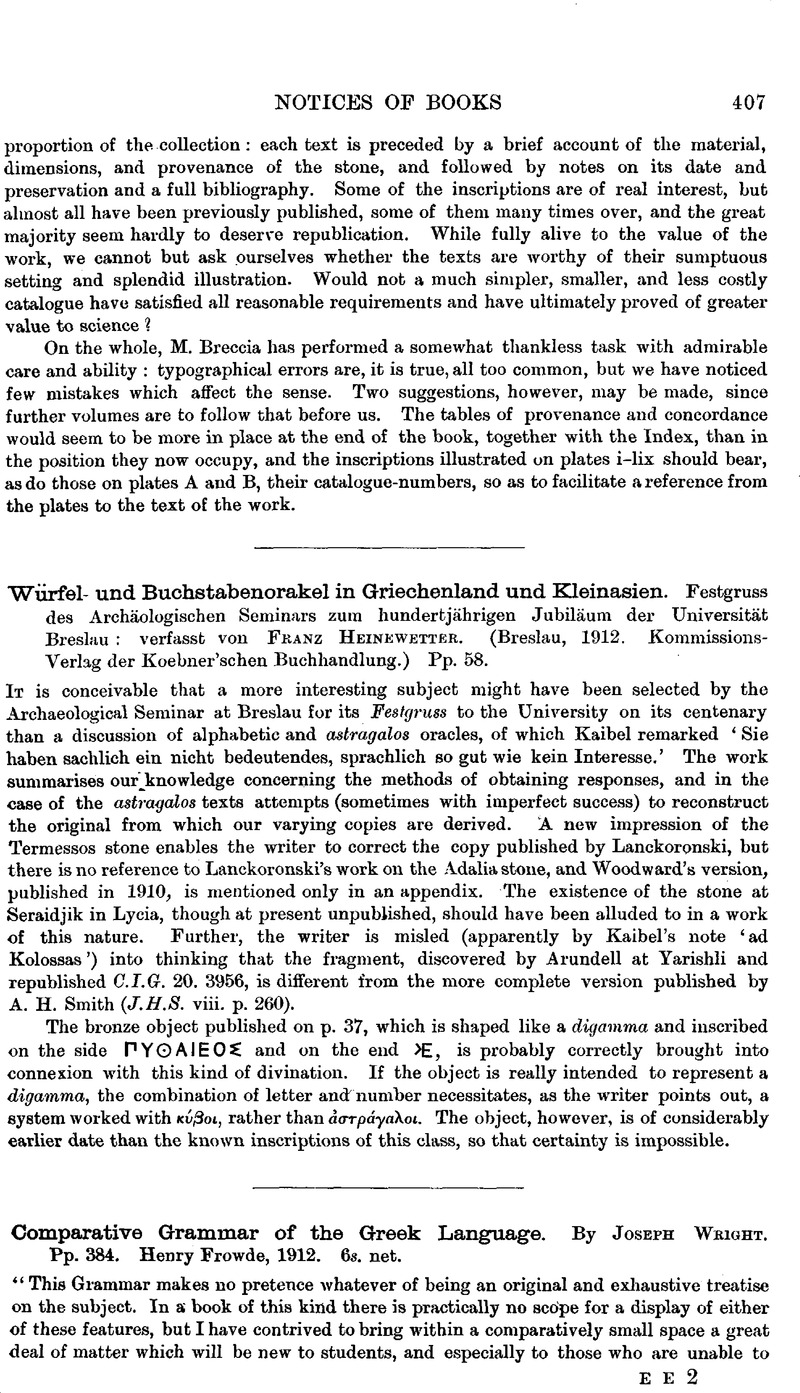No CrossRef data available.
Article contents
Comparative Grammar of the Greek Language. By Joseph Wright. Pp. 384. Henry Frowde, 1912. 6s. net.
Published online by Cambridge University Press: 23 December 2013
Abstract

- Type
- Notices of Books
- Information
- Copyright
- Copyright © The Society for the Promotion of Hellenic Studies 1912
References
1 The choice of the symbol j instead of y to represent the sound of the English and Sanskrit y and the German j is unfortunate, especially as it is applied even to Latin, where i might have sufficed. If the author thought it worth while to depart from the established symbols ḭ and ṷ, there is every reason for preferring the y, since in writing English and Sanskrit, not to mention French, j is used with quite a different meaning.
2 Brugmann, 's Kurze Vergl. Grammatik, p. 361Google Scholar; cf. Classical Review, xviii. (1904), p. 413.




